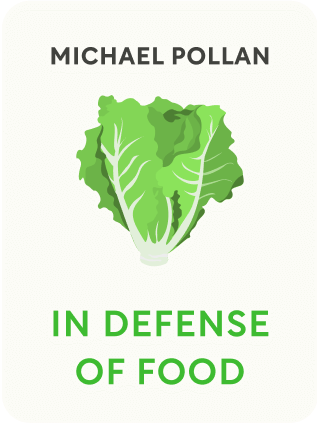

This article is an excerpt from the Shortform book guide to "In Defense of Food" by Michael Pollan. Shortform has the world's best summaries and analyses of books you should be reading.
Like this article? Sign up for a free trial here .
What are the top healthy eating myths that most people believe? And how did we come to believe them, especially when information is so freely available?
With so much healthy eating information floating around on the web, it can be hard to sift out the truth. According to Michael Pollan, the three most prominent healthy eating myths the public tends to believe are 1) nutrients are more important than food type, 2) nutrition is complex and requires scientific explanations, and 3) eating is simply a means to a healthy body.
Here are top three healthy eating myths that the food industry will have you believe.
The 3 Healthy Eating Myths
The only rule about eating that you need to understand is eat mostly plant-based real food in moderation. This idea is simple enough and should be easy to follow. What has prevented us from following this simple rule is the rise of nutritionism. Nutritionism is an ideology about nutritional science, not an actual branch of that science. The focus of nutritionism is on isolating certain nutrients—proteins, carbohydrates, certain fats, and antioxidants—as the cause of either good or bad health. The concept is “eat more of the good nutrients to live longer.”
Nutritionism has created an atmosphere that supports three prominent myths about healthy eating:
- nutrients are more important than food type
- nutrition is complex and requires scientific explanations
- easting is simply a means to a healthy body
1) Nutrients Are More Important Than Food Type
When we only consider foods as valuable for their nutrient make-up, we ignore the internal workings of whole foods. An example of this short-sightedness is the current state of milk.
Milk has become nothing more than a vessel for delivering protein, lactose, fat, and calcium. For decades, food science has attempted to simulate the beneficial effects of these nutrients in milk-like substances. From Liebig’s first attempt to develop a suitable baby formula, several other iterations have entered the market. However, despite the changing compositions of ingredients and added nutrients, there has never been a time when babies fed formula have thrived as well as those given human milk.
If baby formula has the same chemical compounds as milk, it should react similarly in the body. But it doesn’t. The question must be asked: What inherent interactions are happening within the whole milk product to create this advantage?
The boundaries between whole foods and processed foods diminish when food is only valuable as the sum of its parts. Dietary food labels would have you believe that a box of cheese-food product fortified with essential nutrients is as healthy or healthier than actual whole milk cheese straight from the farm. This myth is extremely beneficial for food companies, but it may be extremely dangerous to your health.
2) Nutrition Is Complex and Requires Scientific Explanations
With the rise of nutritionism, we’ve come to believe that healthy eating is too complex to require supervision. This is how we came to rely on official dietary guidelines. However, the dietary guidelines for optimal foods and healthy eating habits are changing more than once per generation. These changes are motivated by information doled out by those who gain the most from consumer confusion. If people stopped needing dietary advice, the following consequences would occur:
- The food industry would lose millions of dollars in marketing and product revenues.
- Nutrition scientists would have nothing to study.
- The media would have less to write about regarding food trends and health.
It’s important to remember that only major food manufacturers have the resources and political power to fund research studies to support nutrition claims and pressure the FDA to approve them. But the science behind these claims, as in most studies based in nutritionism, are often narrowly focused or randomly tested.
3) Eating Is Simply a Means to a Healthy Body
When we see eating as simply a means to a healthy body, we miss out on the other no-less-important benefits of food. Food is not merely an engine that fuels biological health. Eating is a cultural practice as much as it is an avenue toward health. Food is also meant to be enjoyed. It helps create cultural, community, and individual identity. Sharing meals strengthens family and social bonds.
The communal aspect of food is not represented by the mass-marketing of processed foods and nutrition science. Instead, it has gone by the wayside of a cultural obsession with the body. Unfortunately, this obsession hasn’t led to healthier bodies.

———End of Preview———
Like what you just read? Read the rest of the world's best book summary and analysis of Michael Pollan's "In Defense of Food" at Shortform .
Here's what you'll find in our full In Defense of Food summary :
- Why eating a Western diet is killing you
- How the rise of low-fat foods contributed to the rise of obesity and diabetes
- What to eat if you want to restore a healthy relationship with your food






